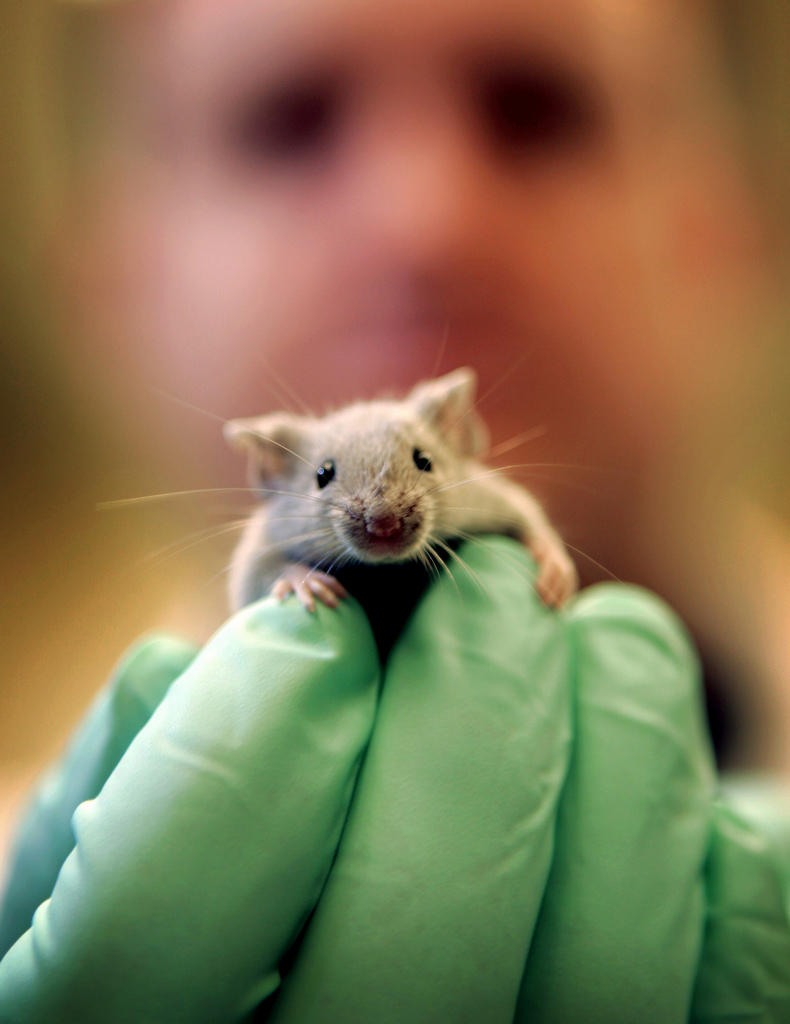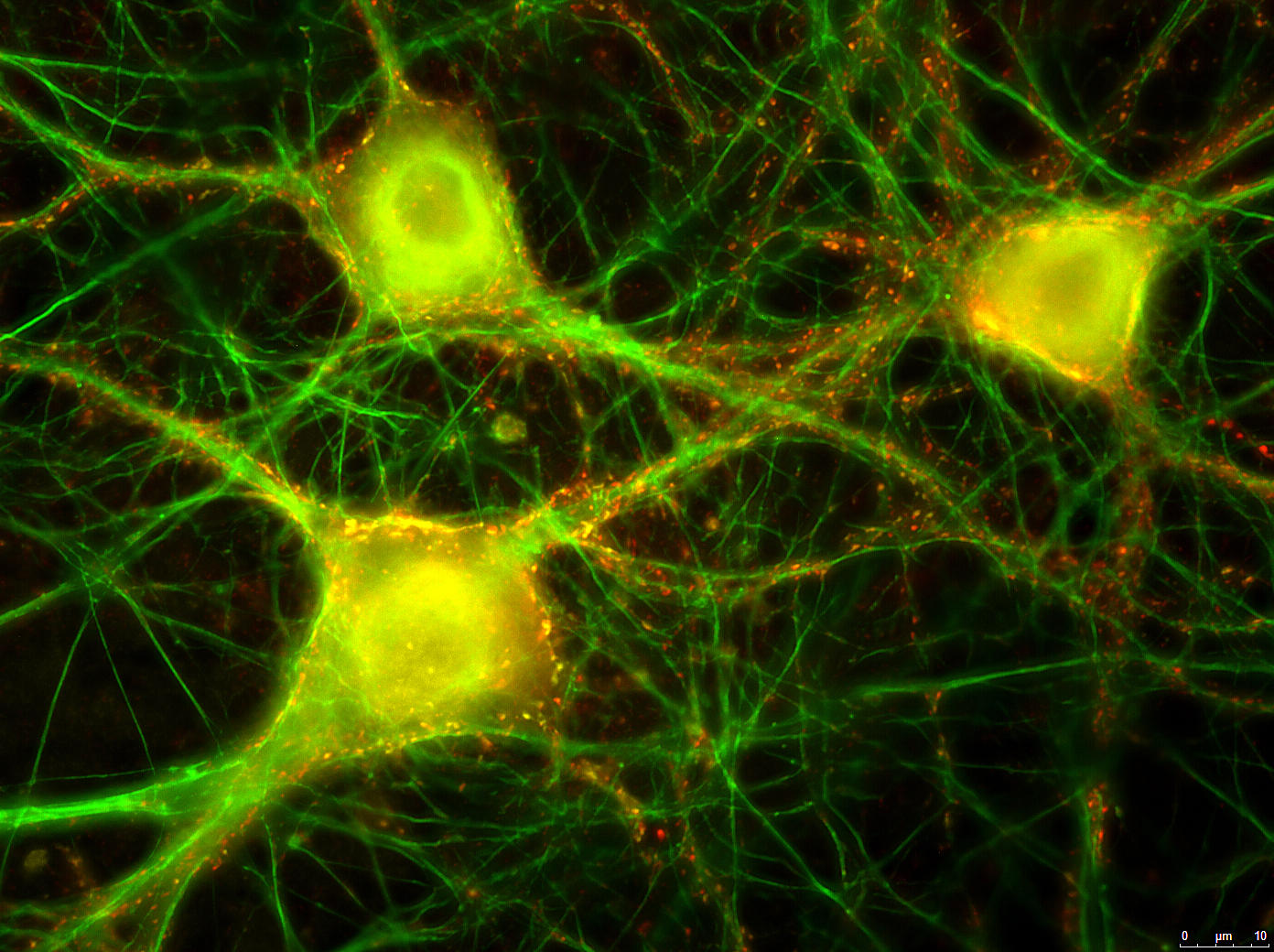
Stem cells replace mice in new Botox test

Swiss scientists have found a way to test Botox using mouse stem cells mounted on chips. The method could save millions of mice from a miserable death.
Researchers at the University of BernExternal link’s Institute for Infectious Diseases have developed a test to measure the strength of botulinum neurotoxin – the key ingredient of Botox, which was created to treat medical problems like chronic pain and crossed eyes, but is best known for its ability to relax wrinkles.
Produced by natural bacteria, the toxin strength varies, so health authorities require the drug to be batch tested before release. Currently, that means doing a so-called mouse bioassay – a century-old method whereby the poison is injected into living mice who become paralysed and begin dying – a process that can take up to four days.
“It is estimated that in the US and Europe, annually more than 600,000 mice are sacrificed for these batch tests. This large amount of animals and suffering causes considerable ethical concerns,” the researchers wrote in a statement on TuesdayExternal link.
Their alternative is an in vitro method using neurons from mouse embryonic stem cells grown on multi-electrode chips. Arranged in a network, they provide a convenient and accurate way to test toxicity.

The university’s infectious diseases institute collaborated with its physiology department as well as the Swiss Federal Office for Civil Protection on the research.
According to the researchers, the new test method could minimise animal experiments and “provide a physiologically relevant platform for drug-screening of [other] neuroactive compounds”.
The study has been published in the journal Frontiers in PharmacologyExternal link.

In compliance with the JTI standards
More: SWI swissinfo.ch certified by the Journalism Trust Initiative

























You can find an overview of ongoing debates with our journalists here . Please join us!
If you want to start a conversation about a topic raised in this article or want to report factual errors, email us at english@swissinfo.ch.